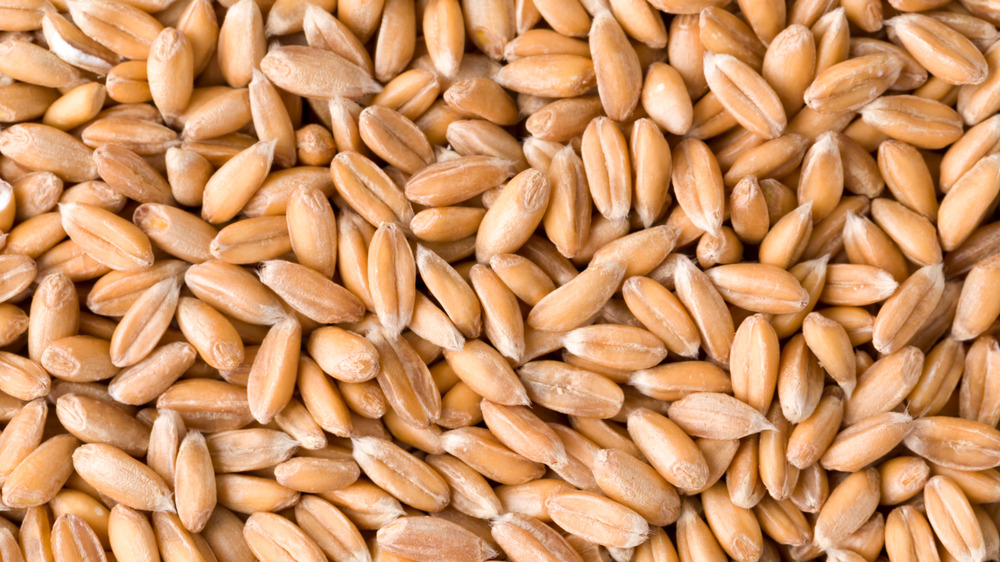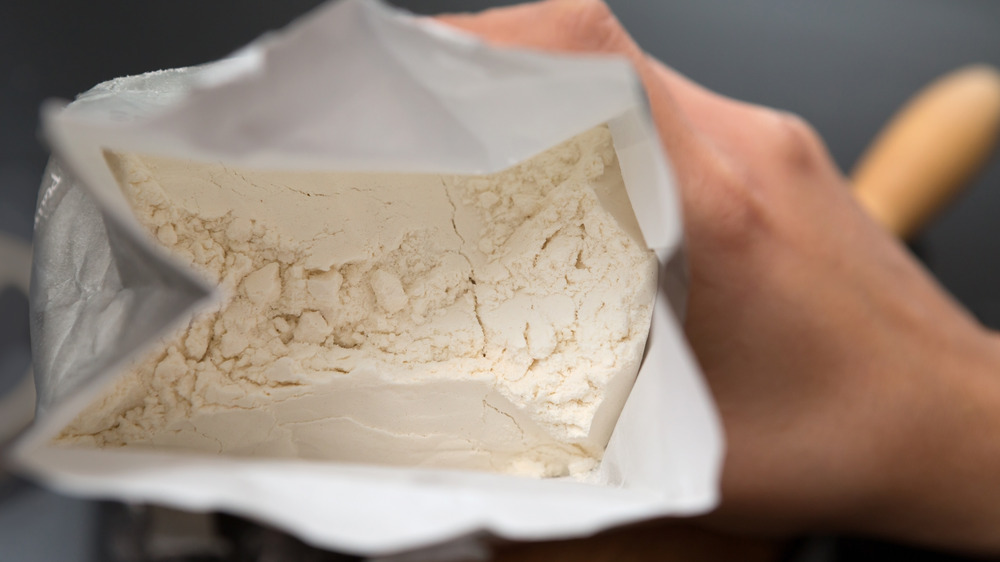Here's Why You Should Keep Spelt Flour In The Fridge
If you're a new home baker or someone whose baking habit is pushing you to try new flours and experiment with different bakes, chances are you have accumulated a range of flours. What you might not know is that you need to treat and store some of them a little differently. White flours are more highly processed and ultimately are stripped of most of their natural oils (via The Spruce Eats). This means the flour can be safely stored at room temperature in an airtight container.
However, it is good to place any new flour in the freezer for around two days to kill anything that might already be in the flour. Once the flour is prepared, it can be placed in a cool place that's out of reach from sunlight. While this works for refined flours, flours that are made with whole grains need to be stored in the fridge or freezer for the long term.
Whole grain flours are fresher
Flours like spelt flour and whole wheat flour are made using the whole grain. That means the entire part of the grain — the bran, endosperm, germ, and more — are tossed in during the milling process (via Bon Appétit). That means the flour is less refined and fresher, which means it can spoil more easily if it's not properly stored.
According to The Kitchn, the best way to store whole grain flours is to freeze it, though the fridge works well too. It really depends on how fast you plan to use the flour. If you use it slowly, the freezer is best because the cold temperature wards off things like the oil spoiling inside the flour or the ability for insects to get into the flour. According to The Spruce Eats, flours can last for up to two years in the freezer.
If you bake often and use up your flour more quickly, you can keep it in the fridge. Storing whole grain flour in the fridge has the same effect, but not to the same degree. It is still a good idea to let your flour sit in the freezer for a couple of days to kill anything that could be in the flour, even if you do plan on storing it in the fridge. Wherever you choose to keep your flour, in the fridge or the freezer, just make sure it is in an airtight container to keep moisture out.

